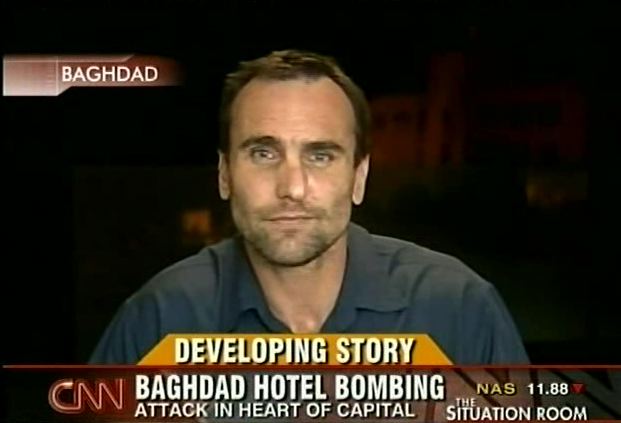TSR: Bombing at al-Mansour Hotel

Click photo to play
Length: 3:33
WOLF BLITZER: As beefed-up U.S. forces pursue insurgents outside of Baghdad, a shattering attack in the Iraqi capital today killed at least a dozen people, including a number of tribal leaders. The attack on a popular political meeting place sends a strong signal to U.S. and Iraqi authorities.
Joining us now in Baghdad, our correspondent, Michael Ware -- Michael, another horrific bombing today at the Mansour Hotel, right in the heart of Baghdad, just outside of the international zone.
Set the scene for us. Give us some perspective of what happened.
MICHAEL WARE, CNN CORRESPONDENT: Yes.
Well, Wolf, I've just returned from the scene of that blast a few hours ago and it is shocking. I mean it doesn't matter how many of these suicide bombings you either witness or see in their aftermath, they're never an easy thing to watch or to look at.
What we have is the Mansour Hotel in the center of the capital of Baghdad itself, just a few hundred yards from the Green Zone and the U.S. Embassy. A number of organizations stay in this hotel, including the Chinese embassy, some Western organizations. We also have a number of Iraqi politicians who reside in this hotel, notably some politicians who have recently verbalized their opposition to the Maliki government. However, it's also a place where people meet. We know that Prime Minister Nouri al-Maliki has been conducting a broad program of national reconciliation at the behest of the U.S. mission. Some of those meetings take place at this hotel. Indeed, a very small one of these meetings was happening when the bomb went off.
Right now, one would suggest that the target of this explosion in the lobby of this hotel was a number of tribal sheikhs who had met with a government representative to express their support for the Maliki government.
As it stands on its face right now, there's no claim of responsibility. But the M.O. -- the method -- is clearly that of Al Qaeda. Until we hear otherwise, the finger certainly points towards that organization.
BLITZER: And it underscores the nature of the violence and the danger in Baghdad, despite the recent increase in the number of U.S. troops patrolling the streets.
WARE: Absolutely, Wolf.
I mean this city has been flooded or surged with as many as 30,000 additional U.S. combat troops, within the city itself and fanning out to its surrounds -- the places from whence the bombs come, the farmlands where the bombs are put together, where the training takes place. So we're seeing a lot of intense U.S. activity, but the violence continues unabated.
Now, American war planners, from General David Petraeus, the American commander in charge of the war, onwards, have all said, "Don't expect miracles. This surge is going to take time, if, indeed, it works at all."
So it's not surprising to see that the car bombs, particularly, continue; that the deadly roadside bombs, EFPs, those which U.S. intelligence claims come from Iran, are on the upsurge. We're seeing America's enemies and the enemies of this government surge themselves, to use the words of an American general.
BLITZER: Michael Ware reporting for us from Baghdad.
Michael, be careful over there.
Thanks very much.
WARE: Thank you, Wolf.
